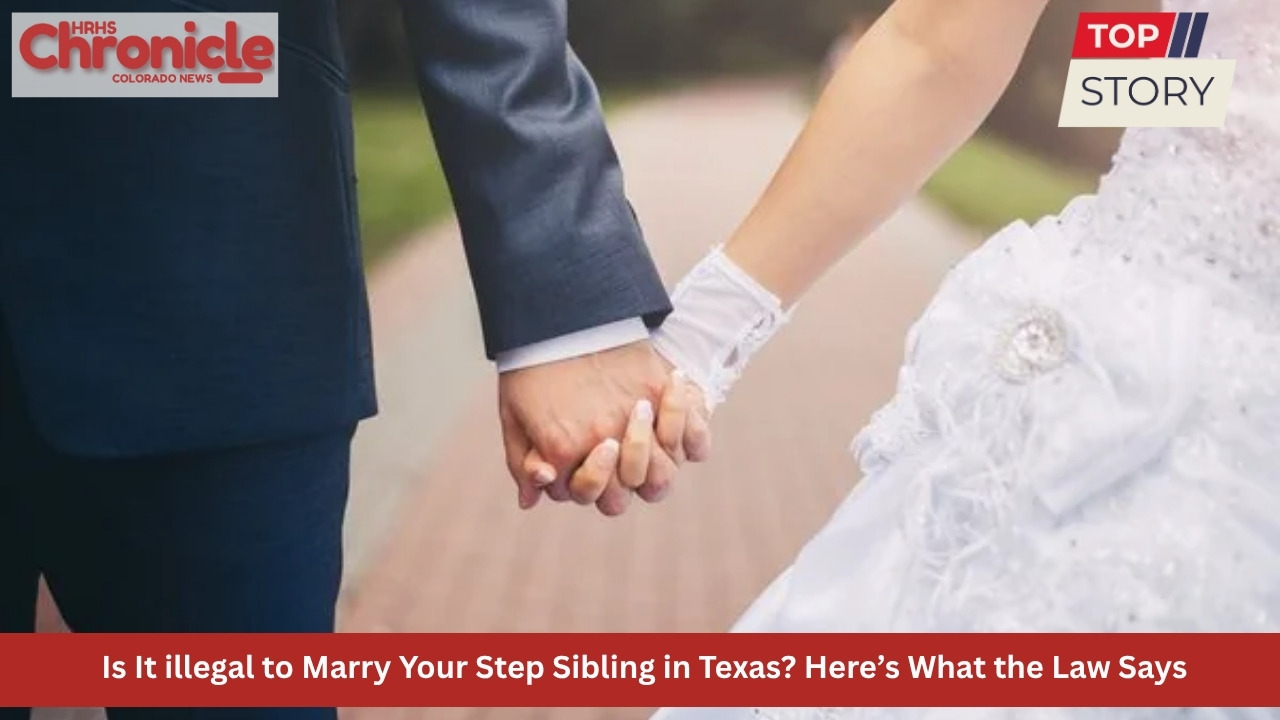Marriage laws in the United States can be surprisingly complex. In Texas, a state known for both its deeply rooted traditions and diverse population, questions about who can marry whom come up more often than one might expect. One particularly common question is whether it is legal to marry a step sibling in the Lone Star State. This detailed guide unpacks Texas law, explores cultural and social perspectives, highlights notable real-life scenarios in major Texas cities, and clears up misconceptions about marrying a step sibling in Texas.
Understanding Marriage Laws in Texas
The Framework of Texas Marriage Law
Texas marriage regulations are governed by the Texas Family Code, which sets out who can legally marry within the state. The law distinguishes between relationships by blood (consanguinity) and relationships created by marriage (affinity), and it is these distinctions that determine who is allowed to tie the knot.
A marriage is generally prohibited if it falls within the prohibited degrees of consanguinity—specifically, between close blood relatives such as siblings or parent and child. But step siblings are not related by blood; their connection is through the marriage of their respective parents.
Who Is Considered a Step Sibling?
A step sibling is the son or daughter of one’s step parent, who is not biologically related. The bond is created when two families blend through marriage. For example, if John’s mother marries Linda’s father, then John and Linda become step siblings. Importantly, there is no genetic link between the two.
Is It Illegal to Marry Your Step Sibling in Texas?
The Legal Perspective
Under Texas law, marriage is prohibited between individuals who are closely related by blood or adoption—a group that includes parents and children, siblings (whole or half), aunts, uncles, nieces, and nephews. However, step sibling relationships are not included in these prohibitions because they are linked only by marriage, not biology or adoption.
This means that, from a legal standpoint, two consenting adults who are step siblings (not by blood or adoption) are permitted to marry in Texas. The law does not void such marriages, and there is no statute that specifically bans step sibling unions.
Cultural Context and Social Attitudes
Although legally permissible, marrying a step sibling can still carry social stigma. In cities like Dallas, Austin, San Antonio, and Houston—where Southern traditions blend with cosmopolitan values—attitudes may vary widely. Some families view the relationship as similar to any non-blood familial connection, while others might find the idea uncomfortable. Social acceptance depends greatly on individual family dynamics, religious beliefs, and community values.
A Closer Look at Texas Marriage Statistics
Texas Marriage Trends
According to the Texas Department of State Health Services, the state sees over 180,000 marriages each year. Major urban areas such as Houston, Dallas, and San Antonio host thousands of weddings annually. Of these unions, only a tiny fraction are between step siblings, but the exact numbers are unknown, as marriage records typically do not specify family relationships beyond prohibitions.
Demographics of Modern Marriages
-
The median age for first-time marriage in Texas is around 28 for men and 26 for women.
-
Urban centers like Austin have witnessed an increase in blended families, contributing to unique family compositions and questions about legality and societal norms.
-
Over 22% of marriages in Texas involve at least one spouse remarrying, reflecting the prevalence of blended families and, by extension, step sibling relationships.
Legal Nuances: Affinity, Consanguinity, and Prohibited Marriages
What Is Consanguinity?
Consanguinity refers to blood relationships. Texas law prohibits marriage between individuals closely related by direct bloodlines, such as siblings, parents, and grandparents.
The Role of Affinity
Affinity refers to relationships gained through marriage (like step relationships). Texas does not consider step sibling relationships within the categories that prohibit marriage, since there’s no shared bloodline.
Prohibited Degrees of Relationship
Here is a table summarizing who cannot marry in Texas by law:
| Prohibited Relationship | Blood/Adoption Relation | Step/Marriage Relation |
|---|---|---|
| Parent and Child | Yes | No |
| Siblings (Full/Half/Adopted) | Yes | No |
| Uncle/Aunt and Niece/Nephew | Yes | No |
| Step Sibling | No | No Restrictions |
Real-Life Scenarios: Marrying a Step Sibling in Texas Cities
Houston
As the largest city in Texas, Houston is home to numerous blended families. Family law attorneys in Houston report that inquiries about marrying a step sibling do occur, especially in multi-generational households. If neither individual is related biologically or through adoption, no legal barriers exist to their union.
Dallas
Dallas courts follow the Texas Family Code strictly. If two step siblings, both adults and not related by blood or adoption, seek a marriage license, local clerks have no authority to deny the application. Misconceptions may occasionally arise, but a knowledge of the law prevails.
Austin
Austin’s progressive culture means that family blends of all types are common and widely seen at weddings. Step siblings considering marriage are not unusual cases here, and most objections are rooted in personal rather than legal grounds.
San Antonio
In San Antonio, as in other Texas cities, community attitudes might be more traditional, but legally, no distinction is made against step sibling marriages. There have been rare instances where clerks have raised questions out of misunderstanding, but the law always supports step sibling unions.
Addressing Common Myths About Step Sibling Marriage
Myth: “Step sibling marriage is considered incestuous.”
Fact: Incest laws in Texas specifically target blood and adopted relatives, not step relations. Step siblings are not included among prohibited relationships.
Myth: “Marriage license clerks can deny licenses to step siblings.”
Fact: There is no legal basis for denying a marriage license to unrelated step siblings in Texas. Occasionally, confusion arises, but challenges are resolved quickly when state laws are reviewed.
Myth: “Step sibling marriage is prohibited if the parents remain married.”
Fact: The law focuses only on consanguinity (blood and adoption), not on affinity. Whether or not the parents remain married does not affect the legality of a step sibling marriage.
The Process of Obtaining a Marriage License for Step Siblings
Meeting the Legal Requirements
To marry in Texas, both parties must:
-
Be at least 18 years old (or have court approval for younger individuals)
-
Not currently be married to someone else
-
Not be closely related by blood or adoption
-
Complete an application at a county clerk’s office, such as those in Dallas County, Harris County (Houston), or Bexar County (San Antonio).
If Questions Are Raised
On rare occasions, clerks in smaller Texas towns may become confused and question the relationship. Step siblings should be prepared to explain that they are not biologically related. Bringing legal documentation and understanding the Family Code helps resolve any doubts.
Social and Ethical Considerations
Family Dynamics in Blended Families
Blended families are now a staple of American life, especially in large Texas cities. With the rise in second and third marriages, family makeup continues to evolve. Step siblings often grow up together but may or may not share a sibling bond, making the transition to romantic partners unique and personal.
Community and Religious Responses
While the law is clear, communities and religious groups in Texas may have their own traditions and beliefs. In more conservative counties such as Collin County or Montgomery County, reactions might be less accepting than in more urban, diverse areas.
Psychologists’ Viewpoints
Mental health professionals in Texas usually treat step sibling relationships like any other non-blood relationship, focusing on the nature of the connection rather than the step label. The primary concern is always the emotional and psychological well-being of those involved.
National and International Comparisons
Step Sibling Marriage in Other States
Texas is not alone in allowing step sibling marriage. Nearly every state permits the union, provided there’s no blood or adoptive relation. In some states, there are restrictions on affinity relationships (such as marrying a former in-law), but Texas does not include step siblings in these bans.
Global Perspectives
Many countries treat step sibling marriage in the same manner as Texas. However, some cultures place greater emphasis on extended family and social taboos, which can affect the social acceptance of such marriages regardless of legality.
When Step Sibling Marriage Might Be Voided in Texas
Limited Conditions for Void Marriages
There are situations where Texas courts can void a marriage, such as when the parties are underage or too closely related by blood or adoption. However, unless step siblings are adopted or related biologically, their marriage cannot be voided solely based on the step relationship.
Adoption and Legal Relationship Changes
If one step sibling is legally adopted by the other’s parent, making them adoptive siblings, the law would then view the relationship differently and prohibit marriage, as adopted siblings are treated as siblings under the law.
What to Do If You Face Obstacles
Seeking Legal Advice
If you encounter resistance when applying for a marriage license due to being step siblings, consider consulting with a Texas family law attorney. Expert guidance is available in all major cities, including San Antonio, Dallas, Houston, and El Paso.
Appealing License Denials
Should an application be wrongly denied, you can request a review by presenting documentation and citing the relevant sections of the Texas Family Code. Persistence, legal support, and clear communication usually resolve the matter efficiently.
Key Takeaways for Texans Considering Step Sibling Marriage
-
There is no Texas law that prohibits the marriage of step siblings if they are not related by blood or adoption.
-
Larger cities such as Houston, Dallas, Austin, and San Antonio are accustomed to diverse family dynamics and blended family formations.
-
Societal acceptance varies. What is legal is not always identical to what is embraced by every community or family.
-
Always check the latest statutes or consult a legal professional if you have doubts.
Frequently Asked Questions
Can step siblings marry in Texas if they have lived together since childhood?
Yes, as long as they are not biologically or legally adoptive siblings, living together does not impact the legality of their marriage.
Does parental objection affect the legality of step sibling marriage?
No. While family acceptance is important for personal reasons, it does not affect the lawfulness of the marriage.
Will their marriage be recognized in other states?
Generally, a marriage legally entered into in Texas is recognized in other states, unless it violates strong public policy elsewhere.
Final Thoughts
The evolving nature of families means that questions about who can legally marry are bound to arise. In Texas, step siblings who share no blood or adopted relationship face no legal hurdles to marrying. Social attitudes may differ from city to city, but in the eyes of Texas law, step sibling marriages are treated like any union between unrelated adults. If you are considering marriage with your step sibling, understanding both your legal rights and your community’s perspectives will help ensure a smooth process and a fulfilling new chapter in your lives.
Helpful Links
- https://www.reddit.com/r/legaladvice/comments/5px1k6/i_was_denied_a_marriage_license_due_to_my_partner/
- https://lawoftheday.com/blog/can-step-siblings-marry/
- https://texaslawhelp.org/article/requirements-for-ending-void-marriages-in-texas
- https://www.thetxattorneys.com/blog/how-do-step-parent-rights-in-joint-custody-work-in-texas
- https://knue.com/legal-marry-cousin-texas/
- https://knue.com/yes-it-is-kinda-sorta-legal-to-marry-your-cousin-in-texas/
- https://fmx.cpa.texas.gov/fm/pubs/paypol/general_provisions/index.php?section=nepotism&page=consanguinity
- https://www.avvo.com/legal-answers/what-are-the-rules-for-cousins-marrying-in-texas–930400.html

Mrs. Odice has been a teacher here for 9 years. She likes yoga and spends most of her time with her 3 kids. She also grew up going to Douglas County schools and is Canadian.















Leave a Reply